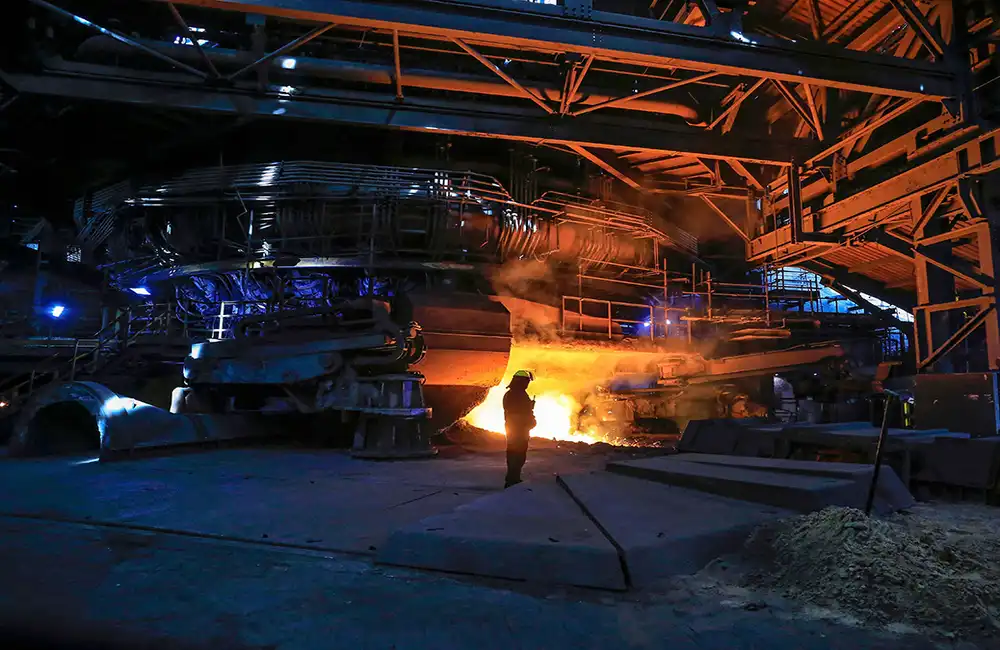The possibility of British Steel becoming a nationalised entity has generated considerable discussion among economic experts and investment professionals.
The UK government evaluates intervention options because British Steel faces financial troubles and operational problems threatening its future. British Steel holds a crucial position in the UK industry, so its future outcomes will strongly affect investors.
This article examines the top ten possible consequences of British Steel becoming a nationalised entity while assessing its effects through multiple perspectives to equip UK investors for future developments.
1. Stabilisation of Domestic Steel Supply
The nationalisation of steel production would provide UK industries with a dependable supply chain while decreasing their dependence on imported steel. The construction, automotive, and energy sectors depend on this stability. The UK could protect itself from global steel market volatility through a steady domestic supply, which would create predictable business conditions for steel-reliant companies and strengthen economic confidence locally.
Investor Implications:
By stabilising the domestic steel supply, investors can create profitable opportunities for businesses that rely on British Steel. The possibility of market distortions arising from state subsidies remains a significant factor that demands attention.
2. Impact on Government Finances and Taxation
Public finances would face additional strain if British Steel underwent nationalisation. The government must make substantial initial financial commitments and provide continuous funding to maintain the company's business operations. As a consequence, increased public spending might result, which could shift the government's budgetary priorities.
Investor Implications:
Increased public spending has the potential to affect tax regulations which might result in higher tax obligations for both companies and people. Investors need to stay informed about potential impacts of fiscal changes on overall macroeconomic conditions and market behaviour.
3. Influence on Domestic Infrastructure Projects
The future stability of British Steel can provide direct advantages to major UK infrastructure projects. Infrastructure projects like HS2 and affordable housing developments alongside offshore wind farms can benefit from the availability of superior local steel supplies, which can decrease production times and expenses.
Investor Implications:
UK infrastructure companies may experience both higher project efficiency and increased profitability. Investors holding shares in infrastructure-related stocks or investment funds may see their returns increase indirectly.
4. Market Confidence and Investor Sentiment
Government involvement in private businesses sends conflicting messages to the market. The government’s support of key industries through specific measures demonstrates its protective stance, yet generates apprehension about excessive market control and government economic involvement.
Investor Implications:
The management of British Steel under state ownership will determine whether investors feel assured or anxious. Market confidence will depend heavily on the government’s ability to communicate clearly and transparently.
5. Potential for Modernisation and Innovation
Through nationalisation, the government has a chance to modernise British Steel. Investing in facility upgrades and sustainable technology adoption, like green steel production, may establish the company as an industry frontrunner.
Investor Implications:
Modernisation efforts can improve British Steel’s competitive standing and profitability while enabling future public-private partnership opportunities. Investors need to track progress in sustainable steel production because it fits current ESG investment patterns.
6. Impact on Employment and Regional Economies
Local economies that depend on British Steel for employment and economic activity face potential economic instability if the steel company goes out of business. Nationalisation would ensure thousands of jobs are saved, stabilising local economies and boosting regional development.
Investor Implications:
The broader economy commonly benefits from short-term job security measures. Investors must balance government aid's potential long-term financial effects with immediate economic stability.
7. Competitive Dynamics in the Steel Industry
The establishment of British Steel as a state-owned company has the potential to change the competitive landscape within the UK steel industry. This approach could create equal opportunities for domestic manufacturers versus importers but private sector competitors might see this as unjust if government subsidies create market imbalances.
Investor Implications:
The UK government's participation in the steel industry could alter the financial performance of private steel companies. Shareholders who invest in these companies should be prepared for possible shifts in their market shares and pricing structures.
8. Implications for Trade Relations and Tariffs
If nationalisation occurs, the UK may change its stance on international trade regulations, particularly those related to steel exports and imports. The government may enforce stricter tariff controls on steel, which might necessitate new trade agreement discussions with international partners.
Investor Implications:
Changes in trade dynamics present potential threats and possible advantages to UK-based multinational businesses. Investors need to actively monitor the potential impacts these changes will have on industries that depend heavily on trade.
9. Long-term Viability and Exit Strategies
Nationalisation provides immediate relief, but sustainable operations and profitable growth determine long-term viability. To develop exit strategies, the government might investigate re-privatisation, cooperative ownership structures, or public-private partnership models.
Investor Implications:
Private investors could discover future opportunities through a successful exit strategy. Investors need to track the state's approach to reaching profitability and its plan for transitioning to private ownership.
10. Impact on Pension Funds and Institutional Investors
The nationalisation of British Steel could lead to uncertain situations for pension funds and institutional investors who hold company shares. Changes in asset revaluation or corporate restructuring will affect investment returns and compel these organisations to revaluate their investment approaches.
Investor Implications:
Institutional investors should consider portfolio diversification and hedging strategies to mitigate possible financial setbacks. Individual investors who depend on these funds must monitor any changes carefully to protect their retirement savings.
Summary and Takeaway for Investors
UK investors face advantages and dangers from the possible nationalisation of British Steel. This process could lead to stabilised domestic supply chains while modernising manufacturing facilities and strengthening regional economic networks. Nationalisation of British Steel could create difficulties for public spending, while shifting market conditions and generating uncertainty within trade and private investments.
Investors must prioritise staying informed about market trends and developments. Monitoring government policies, industrial progress, and market trends helps investors position their portfolios for optimal performance. Seek advice from financial experts to understand how these possible outcomes fit your investment objectives.
Always remain prepared while recognising that each market challenge presents potential opportunities.

















